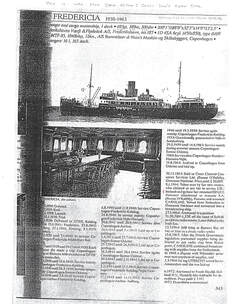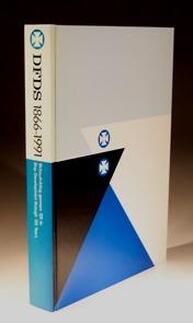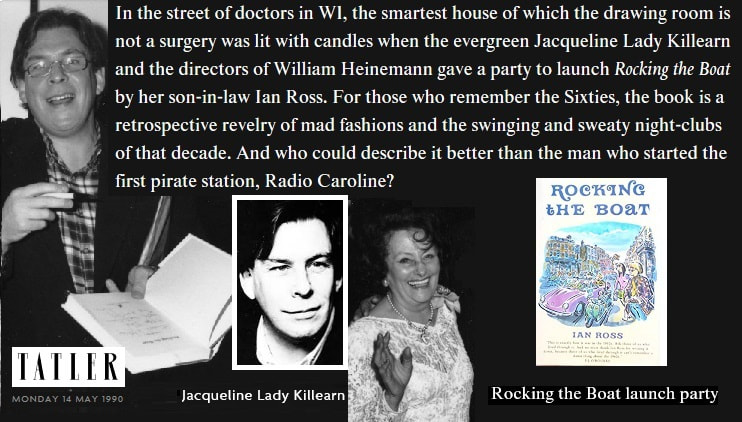|
Under ordinary circumstances that sale would be part of a chain of custody to be accepted as fact, and back in 1963, there was no reason for anyone to question the veracity of this sale. But in 2021 there are many people who choose to ignore this transaction and pretend that it just isn't true. Many do so subconsciously because they may be unaware of the DFDS transaction, and those who do know of the DFDS sale, reject it by blotting out its existence so that they are not confronted by a conundrum. This process of rejection comes from an almost fanatical religious belief founded upon an alternative explanation which is known to be fiction. It becomes a story that has turned the now deceased Ronan O'Rahilly into a 'pirate radio' messiah, not that Ronan O'Rahilly ever did anything worthwhile, except in the early days when he was paid to front for people like Jocelyn Stevens. Ray Clark and Paul Rusling have both created books which rely upon the mythology associated with the name of Ronan O'Rahilly. But O'Rahilly needed help to extrapolate a myth and to build his own quasi-religious following while he was alive. Now there seems to exist a cult which worships his very name, as though he was born to be some sort of radio saint, although even his followers acknowledge that he was a man with many personal faults whose main claim to fame was the procuring of money from other people. Without admitting the obvious foundation of their own storylines, because both Clark and Rusling were too young to have been of the age where they hand first-hand participatory knowledge of what Ronan O'Rahilly was up to, and consequently both Clark and Rusling turn for substance to this book: As you can see, 'Rocking the Boat' was launched as a novel with a lot of fanfare back in 1990, but in the following year (1991), the author appeared on BBC-TV where he inferred that what he had written as fiction, was in fact a recital of events that had actually taken place. But here again, the story as told by Ian Cowper Ross as the 'true story', lacked any proof that it was a true story. Worse still, at no point during the BBC-TV 1991 documentary did Ian Cowper Ross actually say that his 1990 novel was in fact a true story.
But by a constant retelling of the story in the Ross book, as though it is a true compilation of biographical events, this story has become fixed in the minds of many as being a true story. However, there is absolutely no connection between the real story the story told in the book written by Ian Cowper Ross. The names Ronan O'Rahilly and Ian Cowper Ross do not appear in the text of his book. The name of 'Ian Ross' does appear in the book as its author, but only in an abbreviated format. The names of Ronan O'Rahilly and Ian Cowper Ross are not mentioned in the Ross book, because the words in his book relate to fictitious characters and a fanciful storyline. Yet the Clark and Rusling narratives all rest upon that phantom drive to Hindhead by Ronan O'Rahilly so that he could hit-up a man named 'Jimmy', for money. But the book makes no mention of Ronan O'Rahilly, and the fictitious character who is named both 'Jim' and 'Jimmy' in the book, has the surname of Shaw. So there is a clash of contents as recited by Clark and Rusling with regards to the specific transaction as narrated in that book, and the book itself. Clark and Rusling connected dots that do not exist in the book, in other words Clark and Rusling invented a new story. There is also a clash between the contents of the book which is fiction, and the Clark-Rusling version which is also fiction, but a fiction based upon the fiction that their version is in the book - which is fiction. Neither Clark nor Rusling were present at that supposed meeting with 'Jimmy' and so their only source is Ian Cowper Ross who wrote a book of fiction in 1990, and then, in 1991, without actually claiming that his novel of 1990 is really his own autobiographical account, Ian Cowper Ross recited a new version on BBC-TV that sounds like the novel, but which deviates from the fiction in the book, because Ian Cowper Ross claims that his TV version is autobiographical. How did Ian Cowper Ross manage to pull-off that bait-and-switch trick? Simply by never referring to the novel on television and by never calling his father anyone but 'Daddy'. He also implied that Ronan O'Rahilly called his father 'Jimmy' but Ian Cowper Ross did not name his 'Daddy' or use his own full name on television. To discover who Ian Cowper Ross and his 'Daddy' and mother really are, we had to buy a copy of Ian's marriage certificate, since we knew from press reports where and when he go married, and the marriage certificate is a legal document that contains fact, and not fiction. This brings us to that clash with the documentation in the DFDS encyclopedia. It refers to a specific day, month and year with regards to a specific ship owned by DFDS and called 'Fredericia'. The story told by Ian Cowper Ross is vague and told in print as fiction many years after the event. His version is a novel in which the name of a ship called 'Fredericia' does not appear. Before this analysis can continue, the reader must decide which of these two books to believe: The documentary encyclopedia, or the novel about fictitious people and a fictitious ship? The answer seems to be obvious, except to anoraks. They choose to believe the work of fiction. There can be no better example for us to cite than that of the confused mind of a person who calls himself Fred Bramley. He has repeatedly accused us of believing the work of Ian Cowper Ross, while at the same time pointing out that the Ross book is a work of fiction. In reality, we accept the DFDS encyclopedia as fact while explaining why the words uttered by both Ronan O'Rahilly and Ian Cowper Ross are fiction. Why Fred Bramley has fixated upon this idea is not clear at all, since he clearly does not accept the DFDS encyclopedia as being true, and he obviously reveres the legacy of Ronan O'Rahilly. Tomorrow we will continue to reveal why the texts of these two books present two different and totally incompatible storylines. Not only does the DFDS account open up a chain of events for inspection, but that same chain of events goes on to contradict just about everything that the Fred Bramleys of this world think that they know, when in reality know nothing at all about the real world. Comments are closed.
|
Archives
November 2023
Copyright 2022 with all rights reserved.
|




 RSS Feed
RSS Feed